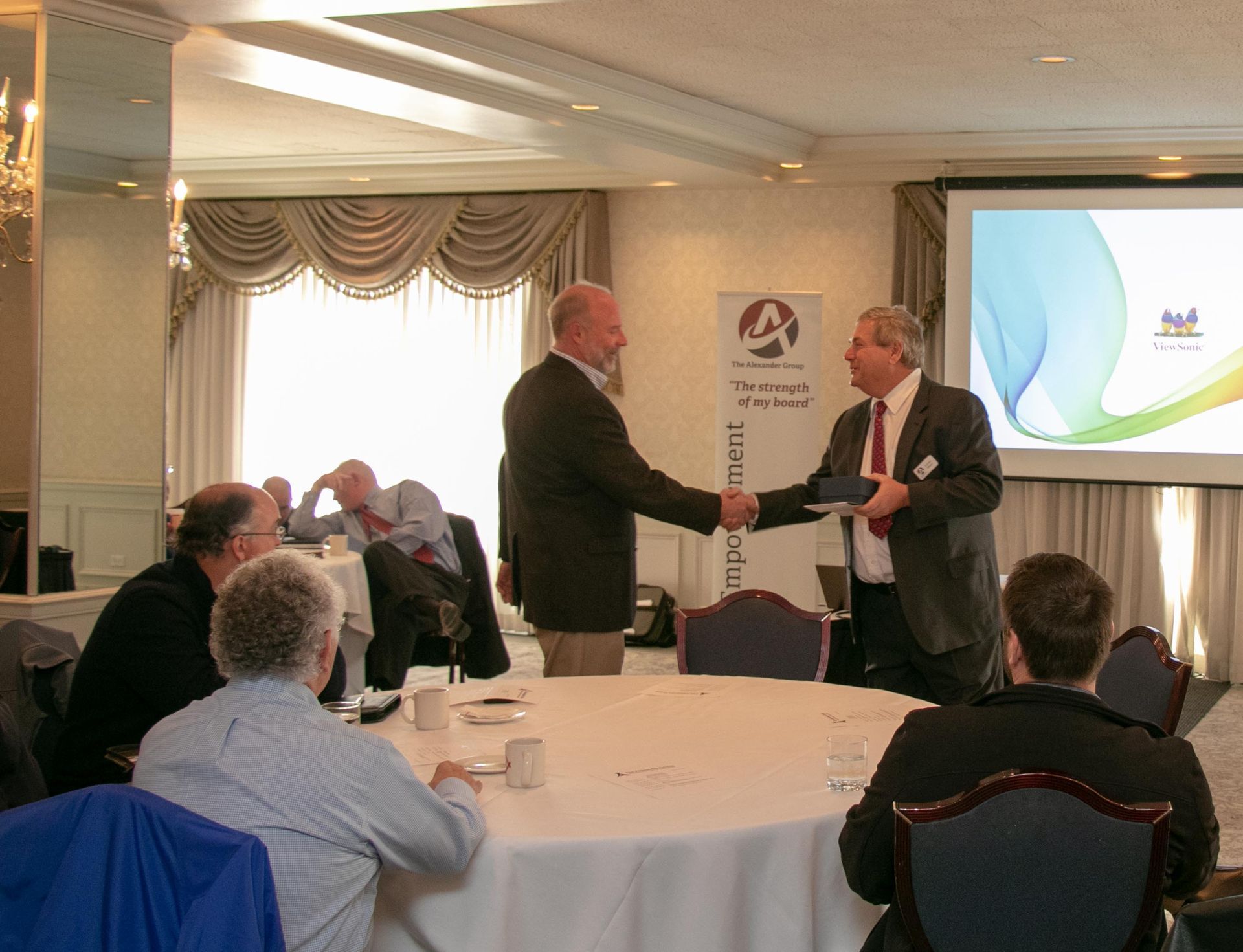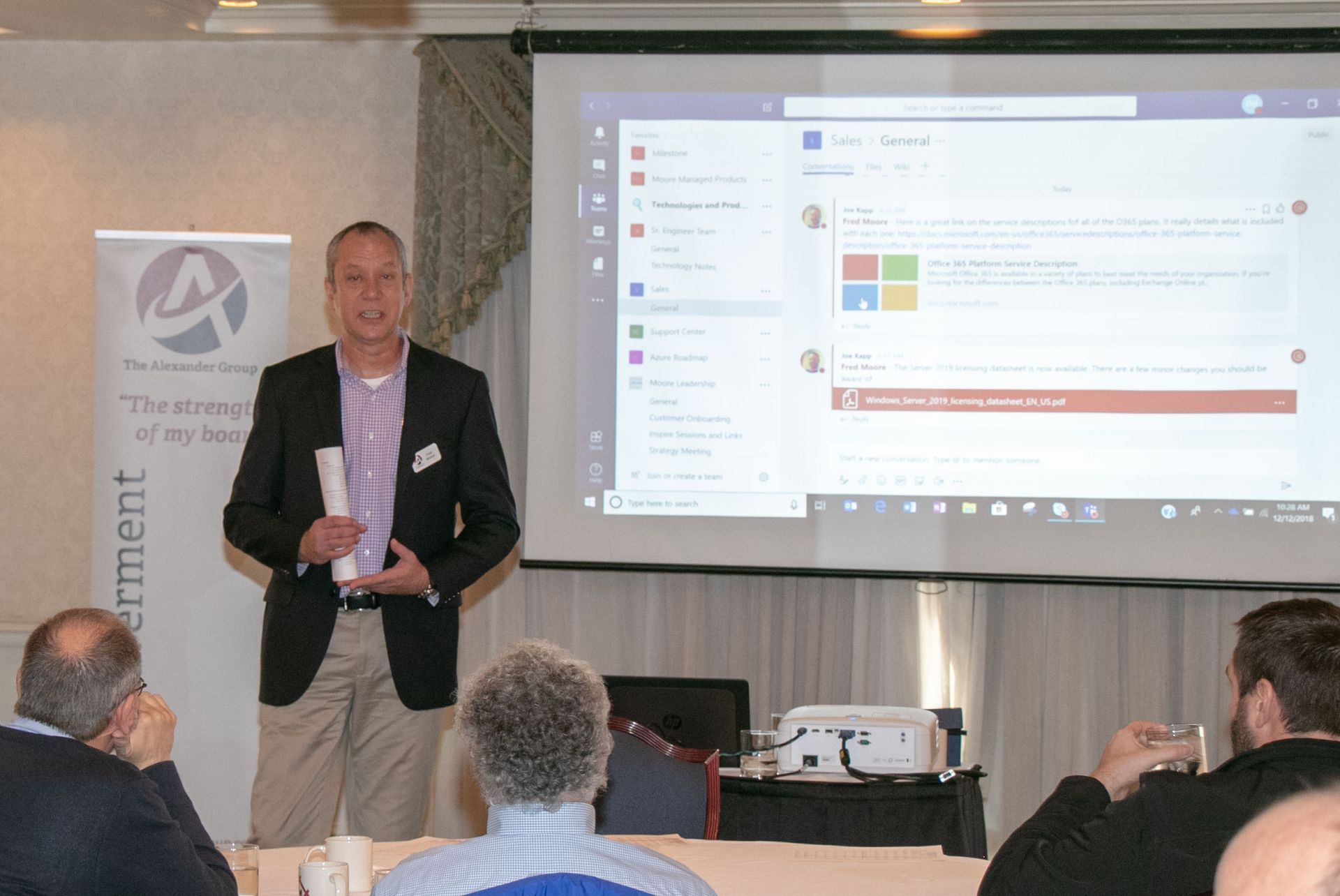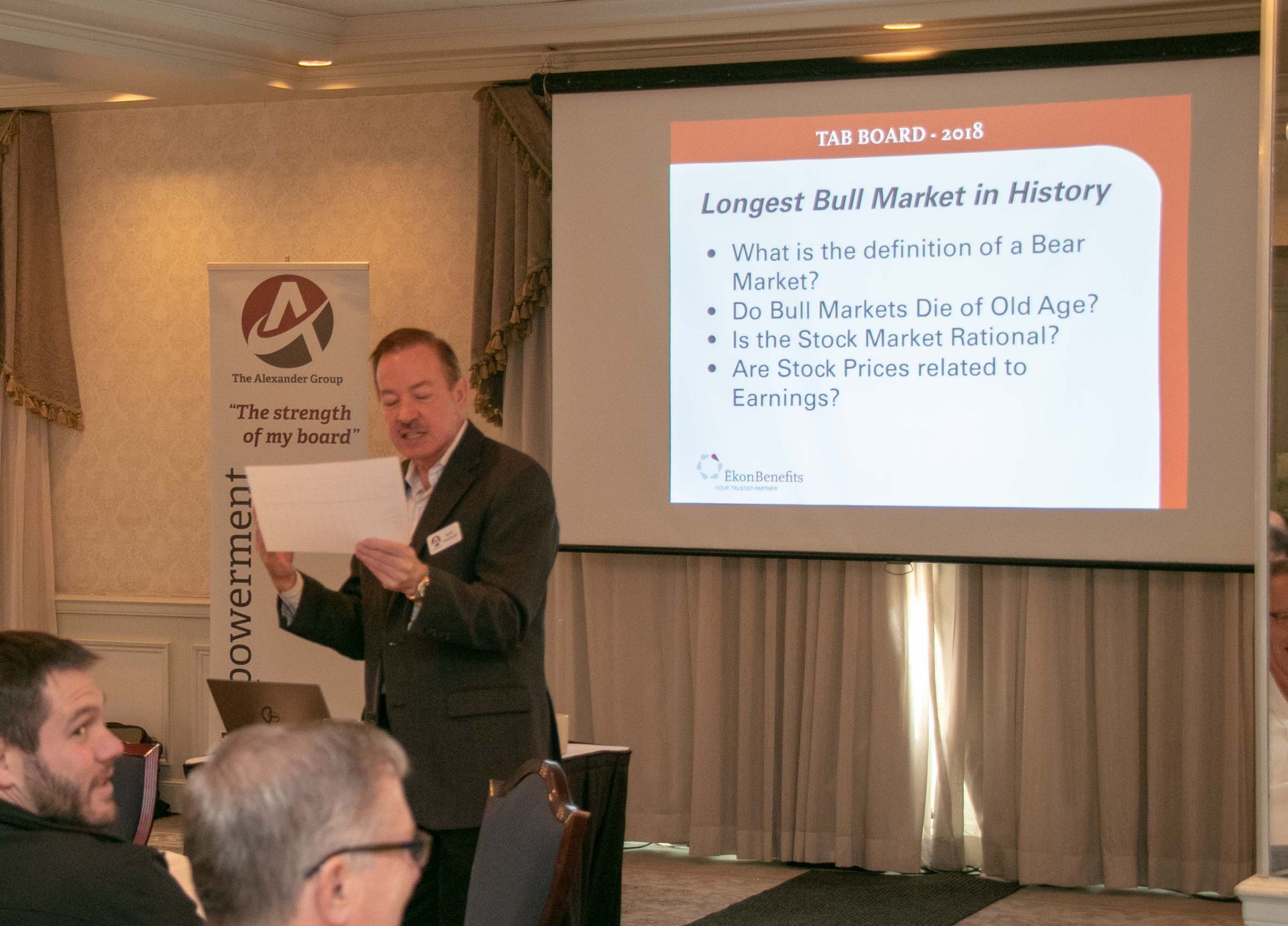New Paragraph

The Alexander Group 2018 Combined Board Meeting
December 15, 2018
The Alexander Group Combined Board Meeting. On December 12, 2018 we combined monthly peer boards 501, 403, and 404 into one board meeting. The event featured some outside speakers as well as service awards to celebrate significant member milestones. The program was followed by a holiday celebration of a great 2018 for The Alexander Group and for our members.
The Alexander Group Combined Board Meeting Speakers
- Fred Moore of Moore Computing gave a presentation about the benefits of creating a digital workplace to attract and retain the next generation workforce. His remarks highlighted some lesser known, but highly valuable features of the Microsoft 365 platform such as video conferencing, file sharing and cloud team collaboration from anywhere.

- Joel Green and Nick Schopp from Aegis Law presented “10 Myths About Lawyers”. They shared some powerful examples of how consulting with your attorney before major decisions can save a lot of money and frustration. It can be a lot cheaper to ask first vs. trying to unwind the wrong decisions later.
- Keith Kowalczyk, from Ekon Benefits recapped the macro economic trends of 2018 and shared his predictions for 2019. Keith is a board member of Board 501 and is also an Actuary, so he was tasked with calculating the annual “Formidable Forecast” winners for 2018. Keith presented the grand prize to—himself!
- Tom Shipley from Cole-Dalton Marketing Services gave the group an update on the emerging issue of ADA accessibility compliance for company websites. He shared some of the possible consequences of ADA non-compliance and gave some suggestions on ADA website accessibility best practices and helpful tools like UserWay.org.

10 Year Service Award
- Keith Kowalczyk, Board 501 – Ekon Benefits
5 Year Service Awards
- Mike Jerome, Board 501 – Bi-State Utilities Co.
- Gus Brecht, Board 501 – Brecht’s Database Solutions, Inc.
- Joe Koenig, Board 501 – Brecht’s Database Solutions, Inc.
- Richard Greene, Jr., Board 501 – The Richard Greene Co.
- Terry Ohlms, Board 501 – T.A. Ohlms, LLC
- Steve Stancic, Board 404 – Specialty Mailing
- John Cusumano, Board 404 – Lazarus Realty Co./Fresh Warehousing
Thanks to all of our Board Members and Business Coaching Clients for another year of successfully helping each other achieve our visions. We look forward to an even better 2019!
Information may be abridged and therefore incomplete. This document/information does not constitute, and should not be considered a substitute for, legal or financial advice. Each financial situation is different, the advice provided is intended to be general. Please contact your financial or legal advisors for information specific to your situation.









